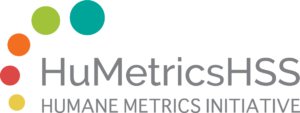Exercise 1
Breaking Down Scholarly Outputs into Intentional Processes
This activity is intended to allow participants to reflect on the notion of scholarly output not just as a final product but as the entire process leading to that product, a series of micro-decisions that can each be considered in their own right in the context of values.
Pick an example of a scholarly practice or output (if you are running this session after the Setting the Scene session, choose a practice or output you discussed there). Consider, as a group, what goes into the overall process behind that output, for example:
- Subject matter: Is the central question well considered? Scoped appropriately?
- Citations, invitations, and bibliographic material
- Type of scholarship: Single-authored? Traditional, digital, or public scholarship?
- Publication choices: Is the work openly available or behind a paywall? Is there a pre-print or other version made available for others? Does the publication cost money, and if so, for whom (author, audience)?
- Who assisted with the research (e.g., research assistants, librarians, archivists)? Is that assistance recognized?
- Who provided feedback on this product? What kind of review, mentorship or formative feedback did it receive?
The idea of this exercise is to slow down and break down our work into the individual micro-decisions that we make every day. These questions point to values — appropriate scope can point to soundness; proper attribution can point to equity, community, and respect; making pre-prints available can point to openness, etc.
All scholars make decisions every day that are based on the values that inform their work. This first step in the workshop process is to bring those decisions to light for ourselves, so that we can then create pathways to let values inform our indicators for evaluation.
Breakout Exercise (3-5 people each group)
Time needed: ~15 minutes
Divide participants into groups of 3-5 people, with designated Zoom break-out rooms. Each group will break down a scholarly practice. Assign each group one of the following practices:
- Writing a Book
- Editing a Journal
- Organizing a Conference
- Building a Digital Project
- Curating an Exhibit
Give each group 10 minutes to discuss the following questions:
- What are the many processes that went into that final outcome of your example?
- Were there any values that informed those processes?
They should also decide on a reporter, who will speak for their group when the time is up.
Report-backs:
Time depends on the number of groups
Each group reports out on the conversation they had. The idea is not necessarily to list every decision involved in the scholarly process, but to reflect on the conversation, the experience of slowing down and thinking through academic labor, and the places they see in the process as sites for intervention and inflection of values.
Session Summary
You have just broken down products into processes that make up scholarship, but before we can talk about how to measure or evaluate these scholarly processes we have to talk about what we want to evaluate them against.
"Excellence" or "quality" is often the framing we use in the academy, but those terms are both nebulous — what do we mean by "quality" scholarship? — and used to uphold toxic and unequal systems that prevent the enacting of other important values.
Instead we’ll get specific: What do you value, individually and as a department or a school or an institution?
You can see some of what our team values in our initial values framework, created at the TriangleSCI workshop in 2016.
